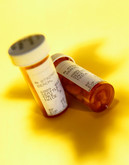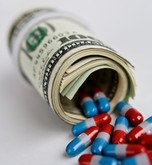Biosimilars
Trastuzumab biosimilar submitted for approval in Japan
Japan-based Nippon Kayaku announced on 11 April 2017 that it had submitted an application for its trastuzumab biosimilar, CT-P6, to the Ministry of Health, Labour and Welfare (MHLW) in Japan.
Italian study compares epoetin biosimilars and originator biologicals
Recently, extensive discussion on the opportunity offered by biosimilars for the sustainability of the National Health Services has taken place in academic and regulatory contexts. The use of biosimilars continues to be limited, and the scepticism of prescribers and patients seem to be linked to the uncertainty of the risk-benefit profile of biosimilars. In the case of epoetins, used in the management of anaemia in the nephrology and oncology settings, the results of a recent study showed no difference between biosimilars and originators on relevant effectiveness and safety outcomes [1].
Increasing access to biosimilars and generics in Europe
On 2 March 2017, the European Parliament voted on a resolution to strike a better balance between European Union (EU) countries’ public health interests and those of the pharmaceutical industry.
Basal analogue insulin ‘copy biological’ launched in Indonesia
Indonesian generics maker Kalbe Pharma (Kalbe) announced on 25 March 2017 the launch of a basal analogue insulin ‘copy biological’ in Indonesia.
Filgrastim follow-on biological has similar efficacy and safety in breast cancer patients
A study comparing two filgrastim formulations for controlling chemotherapy-induced neutropenia has reported similar efficacy, safety and non-inferiority of the biosimilar [1].
Amgen at the centre of biosimilars disputes
The disputes involve a biosimilar of Amgen’s biosimilar of Roche’s Avastin (bevacizumab) and Amgen’s blockbuster Neulasta (pegfilgrastim) being made by Coherus Biosciences.
Marketing authorization for NBCDs in the EU
The regulatory body for approval of medicines in the European Union (EU) is the European Medicines Agency (EMA). The agency is responsible for the scientific evaluation of medicines developed by pharmaceutical companies for use in the EU and this also includes non-biological complex drugs (NBCDs).
EC approval for adalimumab biosimilar Amgevita
Biotech giant Amgen announced on 23 March 2017 that the European Commission (EC) had granted marketing authorization for its adalimumab biosimilar Amgevita.
The European Pharmacopoeia monographs for biotherapeutic products
European Pharmacopoeia (Ph. Eur.) monographs for biologicals have existed since the 1990s and remain the publicly available standard defining the quality of these medicines. Continued development of such monographs, however, faces considerable challenges and the value and utility of these monographs have been questioned in recent years. What such challenges are and how they can be overcome is discussed by Head of Division of the European Pharmacopoeia Department at the EDQM, Dr Emmanuelle Charton, in a GaBI Journal paper [1].
FDA biologicals naming guidance could cost providers billions
Healthcare organizations have expressed their ‘grave concerns’ over the ‘enormous financial consequences’ of the US Food and Drug Administration’s (FDA) guidance on naming of biologicals.












